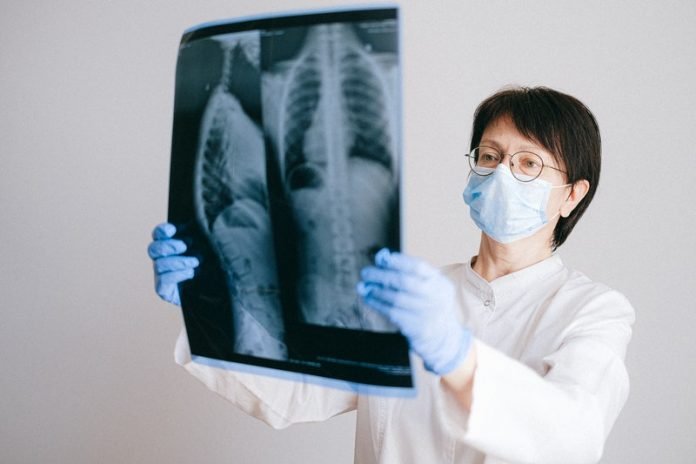
In a new study, researchers found computed tomography angiogram (CTA) scans may offer fast and early detection of COVID-19 in acute ischemic stroke (AIS) patients.
The team found that in addition to patient-reported COVID-19 symptoms, routine or standard care CTA scans were an accurate screening method for faster detection of COVID-19 since they include imaging of the upper portion of the lungs.
The research was conducted by a team at Montefiore Medical Center/Albert Einstein College of Medicine.
In the study, researchers conducted a retrospective analysis of patients treated for AIS at three hospitals in the Bronx from March 1 to April 30, 2020, the height of the COVID-19 surge in New York City.
A total of 57 patients who received a CTA scan within 24 hours of hospitalization for AIS were included in the study.
Researchers used CTA scans to evaluate the lung apices (the upper area of the lungs) for signs of COVID-19 pneumonia.
They then analyzed the accuracy of using CTA scans for COVID-19 diagnosis alone as well as in combination with patient-reported symptoms, such as cough and/or shortness of breath.
The study defined confirmed COVID-19 positive cases from nasal swab PCR-test results, which are the standard required by the U.S. Food and Drug Administration (FDA) for COVID-19 testing, and it can take several days for results.
Of the 57 study participants, three were diagnosed with COVID-19 prior to the date when a nasal swab COVID-19 test was administered.
Researchers found that CTA scans in combination with patient feedback to COVID-19 symptom questions were able to diagnose COVID-19 with 83% accuracy before results were received from traditional nasal swab tests in AIS patients.
30 of the 57 patients included in the study were COVID-19 positive.
20 of the COVID-19 positive patients and 2 of the COVID-19 negative patients had findings highly suspicious for COVID-19 pneumonia on their CTA lung scans.
The team says screening questionnaires alone are often inaccurate because of the absence of symptoms or the patient is unable to speak because they are suffering from an acute stroke.
Early diagnosis via CT scans has helped them protect other patients and staff through early isolation, and it has also allowed them to start early supportive care for those suspected of having stroke who are COVID-19 positive.
One author of the study is Charles Esenwa, M.D., M.S.
The study is published in Stroke.
Copyright © 2020 Knowridge Science Report. All rights reserved.



